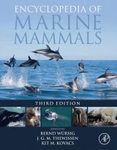About this book
Groundwater Ecology and Evolution, second edition covers the basic attributes of groundwater ecosystems, the processes shaping patterns of species diversity, the evolutionary forces driving the acquisition of subterranean biological traits, the way these traits are differently expressed among groundwater organisms, and the role of organisms in maintaining biogeochemical processes. The final sections show how knowledge acquired among multiple research fields (sections 1 to 5) is used to manage groundwater biodiversity and ecosystem services in the face of future groundwater resource use scenarios. Emphasis on the coherence and prospects of the whole discipline is made in the introduction and in the conclusions of the book. This book is primarily intended for an audience of graduate students, post-graduate students and academic researchers involved in the study of groundwater ecosystems.
Contents
Section 1: Setting the scene: groundwater as ecosystems
1. Hydrodynamics and geomorphology of groundwater environments
2. Groundwater biodiversity and constraints to biological distribution
3. Functional habitat classification
Section 2: Diversification and dispersal in groundwater
4. Models and tools for the study of diversification in groundwater
5. Diversity patterns from global to regional scales
6. Phylogenies reveal diversification dynamics
7. Dispersal in groundwater
Section 3: Principles of evolution during groundwater colonization
8. Models and tools for the study of trait evolution during colonization of groundwater
9. Developmental and genetic basis of troglomorphic traits in the teleost fish Astyanax mexicanus
10. Developmental and genetic basis of troglomorphic traits in the isopod crustacean Asellus aquaticus
11. Genomics and transcriptomics of groundwater colonization
Section 4: Functional trait ecology in groundwater
12. Models and tools for the study of biological traits in groundwater organisms
13. Habitat specialization in groundwater
14. Trophic specialization
15. Physiological tolerance among groundwater organisms
Section 5: Role of groundwater organisms in biogeochemical cycles
16. Models and tools for studying the role of groundwater organisms
17. Microbial diversity and processes in groundwater
18. Groundwater food webs
19. Role of organisms in ecosystem processes and services
Section 6: Biodiversity conservation and management of groundwater ecosystems
20. Existing framework for the conservation of groundwater biodiversity and ecosystem services
21. Predictive scenarios of groundwater resources and uses
22. New concepts for conserving groundwater biodiversity
23. Assessing groundwater ecosystem health, status and services
24. Environmental biotechnology and water management: niches for groundwater ecology
Customer Reviews
Biography
Dr Florian Malard's early scientific emphasis was on the role of environmental factors in shaping the diversity of local communities, more especially the influence of surface / groundwater interactions in shaping the composition of groundwater communities. Dr Malard addressed this topic in a variety of habitats including karst and porous groundwater and the hyporheic zone of streams in contrasted environments ranging from the high alpine zone to urban environment. Meantime, Dr, Malard developed a number of research on the influence of groundwater human use on the function of groundwater ecosystems and the role of organisms in maintaining ecosystem processes such as the cycling of organic matter. Over the last 20 years, Dr Malard has been working at the interface between ecology and evolution for understanding the determinants of large-scale biodiversity patterns using concepts and tools from macroecology, phylogeography and statistical ecology. Although his preferred study object remains groundwater organisms (especially the Aselloidea, Isopoda), Dr Malard's emphasis is on using this object to solve scientific questions going well beyond the frontiers of groundwater systems. He presently leads a research group entitled "Ecology, Evolution and groundwater Ecosystems" which aims to understand how eco-evolutionary processes shape the range of possible functional processes played by organisms. Dr Malard has contributed to 125 publications, including 75 peer-reviewed articles and 15 book chapters.
Christian Griebler is the Acting Director of the Institute of Groundwater Ecology (IGOE), Helmholtz Center Munich.
Dr Sylvie Rétaux is a neuroscientist and developmental biologist whose interests have shifted to evolutionary biology about 20 years ago. Her lab works on eco-evo-devo of a cave-dwelling organism, the blind cavefish Astyanax mexicanus. Using an integrated approach combining embryology, neuroscience and behaviour, genetics and population genetics associated with fieldwork, she aims at discovering the mechanisms of adaptation to life in the dark. She has published 73 journal articles and contributed a number of book chapters.


































